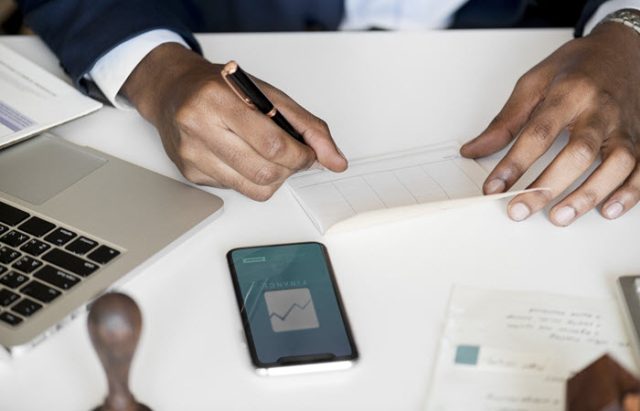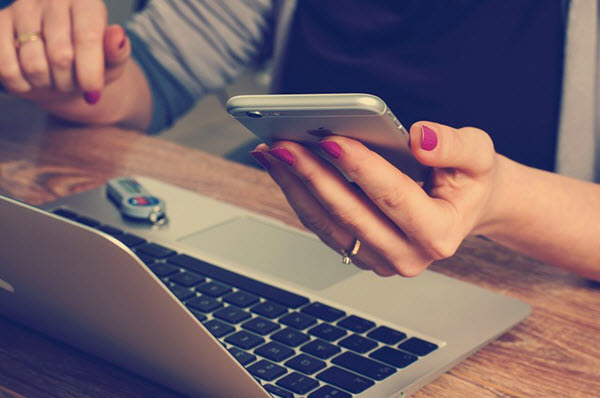13 Online Banking Security Tips You Should Know About
By Dumb Little Man
February 25, 2019

Banking online is fast and convenient. This is what makes it so popular with people all over the world. However, it also exposes you to more threats. We want you and your money to stay safe, so we’ve put together a list of the best online banking security tips available.
Don't Use a Public WiFi Network

Never access your banking information over an unsecured or public WiFi network. Since they're usually not encrypted, it's easy for hackers to get in and steal information. Instead, save your banking and account checking for when you're at home. Your own network is private, and there's a low risk of getting your information stolen this way.
Enable Two-Factor Authentication
Two-factor authentication is another security layer that you can add to all of your banking information, including the best checking accounts. Every time someone tries to log into your account, your bank will automatically send you an email or text alert. This alert will contain a unique code that you have to put in before you can log into your banking account.
Don't Click an Email to Log into Your Account
Your bank may periodically send you emails about your account. However, you don't want to click them and allow them to route you to your bank. Instead, go straight to your bank's website and log in through there. You can access your paperless inbox and look at any emails you receive. This will reduce the risk of becoming a victim of a phishing scam.
Create and Use a Strong Password
Although you may be tempted to create one password and use it for everything, you want to have a unique and strong password for your banking information. You want to use uppercase letters, lowercase letters, numbers, and symbols. Additionally, you should plan on changing this password regularly.
See Also: 6 Foolproof Tips for Creating Powerful Passwords
Monitor Your Accounts
Check your accounts at least once a week. Look at all of your transactions and make sure that they're legitimate. You want to have authorized them all. Make sure that you report anything suspicious to your bank. If you routinely shop online from your bank account, double check it after every purchase. This will help to ensure that everything is correct.
Use the Mobile App for Your Bank
Did you know that your bank encrypts their mobile app? It's less open to attacks than the bank's website, and it's most likely more secure. Download your bank's specific app and use this to check your accounts. Just remember to download any updates that come through because this will help to ensure that the security certificates are up to date.
Lock Your Devices
Even though your banking information is usually secure, always lock your devices. This includes your phone, laptop, tablet, or anything you use to access your banking information. You can use a password, fingerprint, or PIN to do this. Remember, the more difficult it is for someone to access your information, the less likely it is that someone will be able to steal it.
Switch Bluetooth Off When It's Not in Use

One of the newer ways thieves are gaining access to information is via Bluetooth. They simply hack into your device through your Bluetooth connection and take control of certain functions. You can avoid this by switching your Bluetooth off every time you're not using it.
Disable Automatic Login
Even if you're the only one to access a device, you want to disable the automatic login. Also, disable autofill and remembering passwords. You never know when someone will get into your device will ill intent. Clear all of your saved information and disable autofill for your bank. This will make it more difficult for someone to get into your account.
Check for a Secure Connection
Always use a secure connection when you access your sensitive information. This includes looking for a little green padlock in the address bar. It should also show “https” instead of just “http.” This will help ensure that you're on and using an encrypted connection. They have more layers of security than a standard connection.
Keep Your Devices Current
Yes, downloading constant updates can be time-consuming. But, you're usually downloading the newest security features and patches each time you update your device. Instead of putting it off for weeks, update it straight away. Do this consistently to keep all of your devices secure.
See Also: 8 Easy Steps To Your Browser Security And Privacy
Always Log Out
Most banks have an automatic feature that logs you out after a set period of inactivity. However, you don't want to rely on this. Instead, get in the habit of logging out each time you finish with your banking session. This will prevent someone from simply sitting down at your device and moving things in your account.
Use Anti-Virus Software
Having a licensed anti-virus software installed and running on your computer can help prevent malware or spyware infections. Set your software to routinely scan for updates. However, you do want to manually update them because you'll be able to double check that all of the updates are legitimate.
Bottom Line
These 13 online banking security tips can help to ensure that your sensitive information stays private and secure. We advise you to take all of them and incorporate them into your everyday routine to help ensure that your hard-earned money stays safe.
Dumb Little Man
At Dumb Little Man, we strive to provide quality content with accuracy for our readers. We bring you the most up-to-date news and our articles are fact-checked before publishing.







